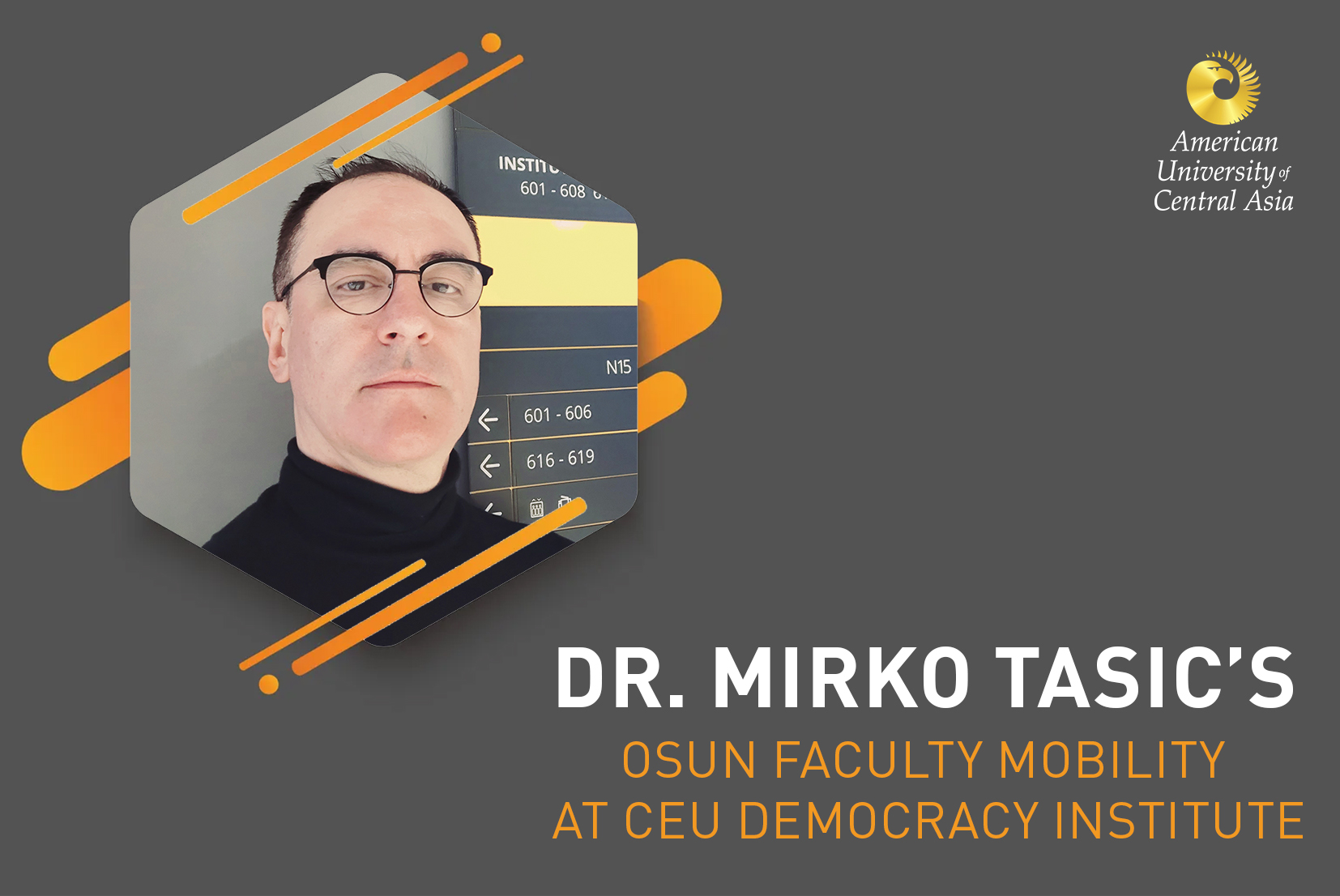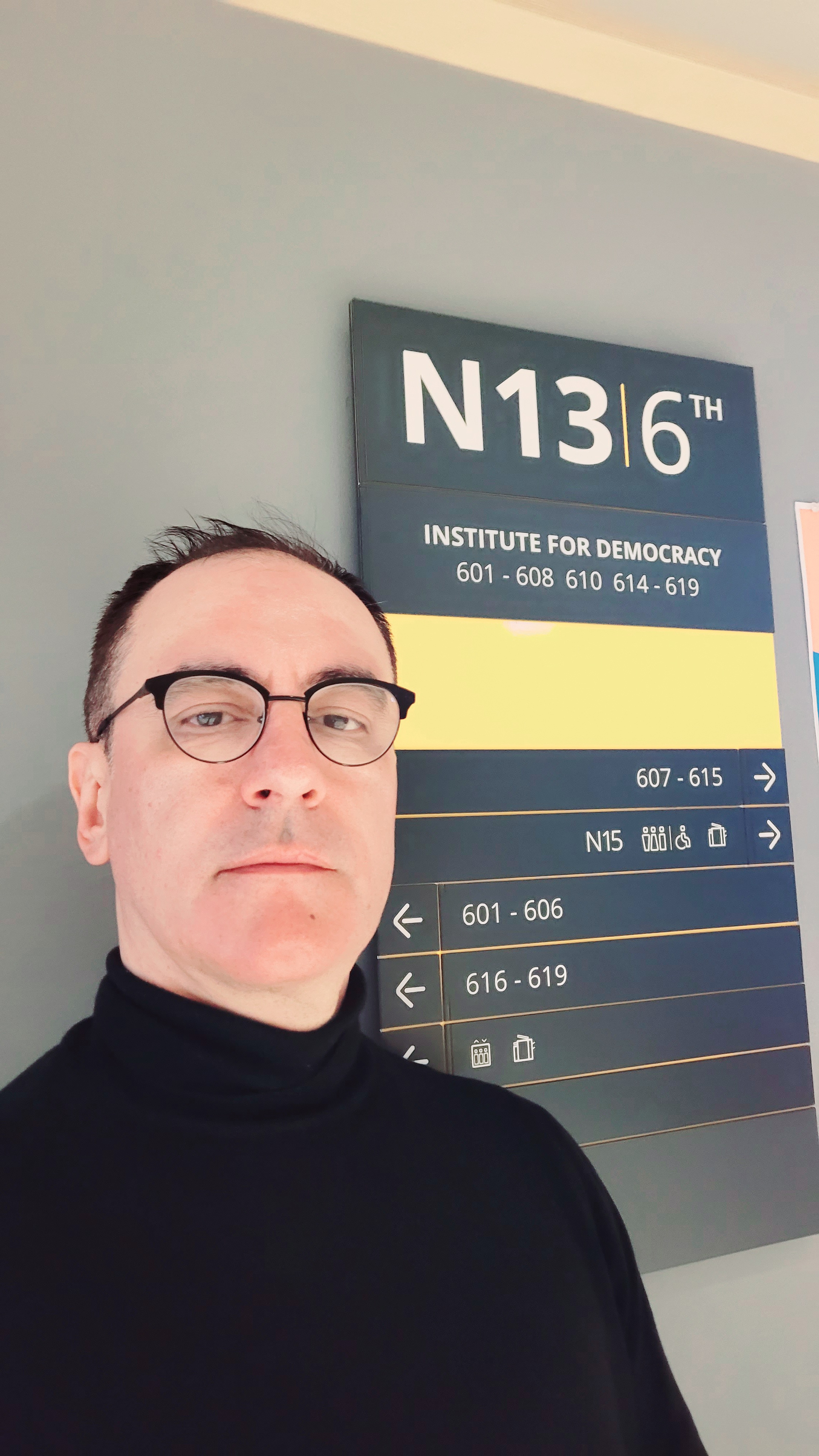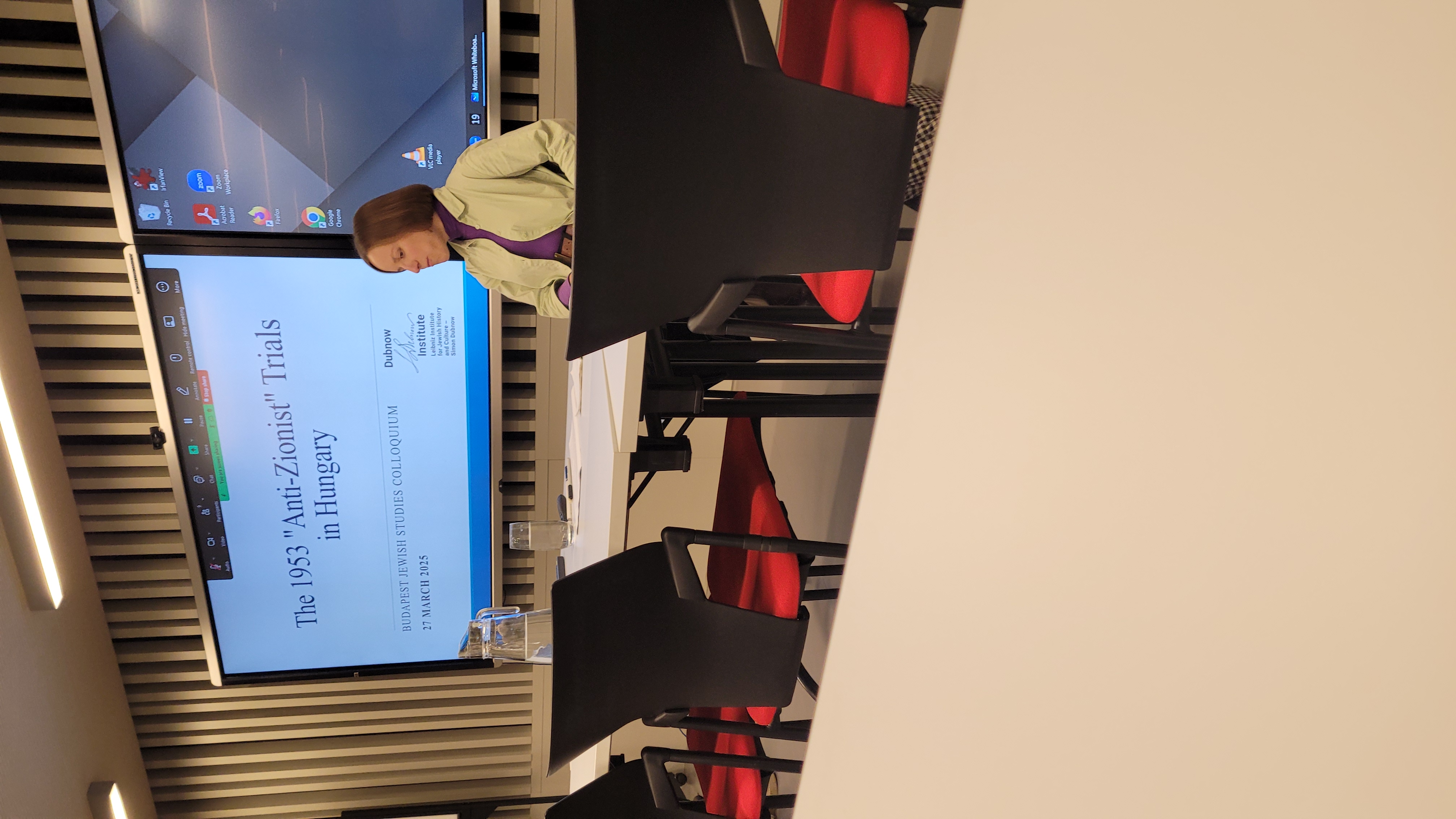Dr. Mirko Tasic’s OSUN Faculty Mobility at CEU Democracy Institute
September 18, 2025

��
Dr. Mirko Tasic, an Associate Professor in �山ǿ��’s International and Comparative Politics Department, recently completed an Open Society University Network (OSUN) Faculty Mobility Fellowship at the Central European University’s Democracy Institute in Budapest, Hungary.
��
During his fellowship in March 2025, Dr. Tasic served as a visiting research fellow, where he investigated the complex relationship between democracy and diplomacy.
��
His research highlights the largely unexplored ambiguity of this nexus. Dr. Tasic’s insights were published in an op-ed in the Review of Democracy () as part of this program.
Dr. Tasic argues that as trust in democracy erodes and national interests increasingly overshadow international law, the very role of diplomacy comes into question. This decline in democratic ideals, he notes, coincides with a rise in coercive power, undermining established diplomatic norms. His analysis critically examines the intersection of democracy and diplomacy, posing the fundamental question of whether democratizing diplomacy is feasible when democracy itself can be manipulated to serve “super-imperialism.”
��
During his two-week fellowship, Dr. Tasic actively participated in seminars, collaborated with research group leaders, the institute’s director, and other colleagues, and conducted extensive research on democracy-related topics. Beyond his core research on democracy and diplomacy, Dr. Tasic also explored potential collaborations on “liquid democracy” and the digitalization of election processes. While these discussions with research group leaders indicated the need for more time and resources, they laid the groundwork for potential future research projects.
��
The Democracy Institute itself left a strong impression on Dr. Tasic, with its striking architecture reminiscent of Sagrada Familia and even the open atrium of �山ǿ��. He also noted a shared artistic and intellectual atmosphere between Budapest and Bishkek, offering an inspiring retreat for researchers and art enthusiasts alike.
��
Dr. Tasic’s closing reflections beautifully summarize his findings: regardless of how a democratic state frames its foreign policy—whether straightforward, open, transformational, or coercive—its success ultimately depends on the actions of its representatives. Both domestic and international audiences perceive these actions as either reinforcing or undermining the state's governing principles. He emphasizes that criticism should target specific policies carried out through diplomacy, rather than diplomacy as a whole. Ultimately, he suggests, democratizing diplomacy might not be about perfectly aligning outcomes with democratic values, but rather about ensuring that the processes themselves remain transparent, participatory, and accountable, even in the face of realpolitik.
��
Dr. Mirko Tasic’s article, “SOFs and PMSCs: Factors of Stability and Change,” was recently published in the Journal of Strategic Security, an academic journal from the University of South Florida. The publication is part of Volume 18, Issue 3, and can be accessed at:


